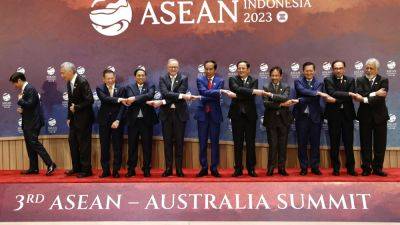Far-right views in Southeast Asia? How 2 Singapore cases may reflect ‘anti-woke’ movement’s slow creep
Ethan, who was 26 at the time and in his third year of university, said social media platforms such as YouTube and Facebook began pushing out these clips from seemingly apolitical pages that offer men motivational quotes, book recommendations and advice on how to get rich.
These social media pages are part of a larger internet community that promotes traditional gender expectations of men, fitness and so-called hustle culture, occasionally also spilling into the realm of politics, which typically feature conservative personalities criticising what they perceive as “woke” policies.
Analysts say the tendency of some Asian users to be influenced online by far-right causes – and in some bizarre cases straying into white supremacism – could be increasing in the digital age, with young men among the most susceptible demographic.
“I must admit … once I started, I just kept watching and it kind of shaped how I felt about society,” Ethan, now 28, told This Week in Asia.
In university, many of his classmates were “resoundingly left” and this had pushed him to “question the state of affairs” and delve deeper into exploring far-right beliefs, he said.
While Ethan has never himself crossed the Rubicon into identifying as a white supremacist, he admitted to developing a hatred towards people of racial minority backgrounds, LGBTQ individuals and feminists, becoming what some analysts have described as “anti-woke”.
Terrorism analysts who spoke to This Week in Asia said that while cases of far-right extremism in Asia have remained relatively low, the numbers could continue to rise as a form of “resisting progressive changes” and “diminished exclusive privileges”.
Munira Mustaffa, managing director of Chasseur Group, an analytical consulting







